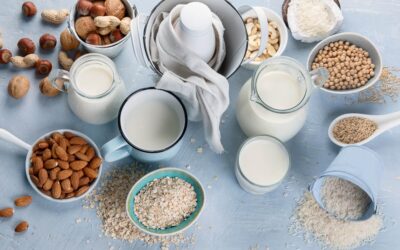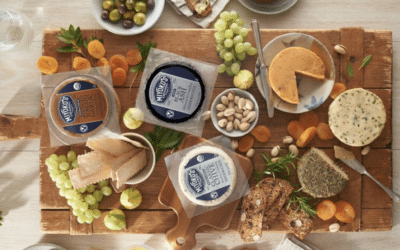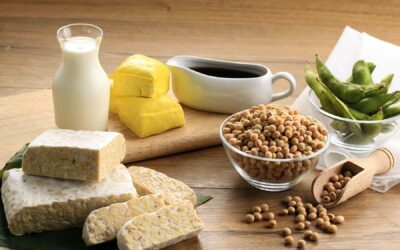We’ve often stated that cow’s milk contains hormones, a fact which can make people reconsider their daily dairy intake. However, what, exactly, is it about hormones that harm us? We asked Dr. Vivian Chen to explain the science behind ingesting hormones from dairy products and what these specific hormones can do to our bodies.
What’s in Cow’s Milk
First, let’s define what is in a glass of cow’s milk. It’s far more than just milk and water. Dr. Chen affirms that dairy products are a source of environmental toxins such as PCB and Dioxins, known as persistent organic pollutants (POP). Don’t be fooled by the term ‘organic;’ it simply means that these chemicals contain carbon. Contrary to what ‘organic’ may imply, they are not healthy or POP-free.
Toxic Substances in Milk
Chen emphasizes that POPs are “very toxic substances” that can exist in the environment for long periods of time and do not break down easily. These substances can enter into our dairy products in even ‘pasture-raised’ cows, because they exist in the soil and water. And while one might argue that plants may also be ‘contaminated’ with POPs, dairy products actually have far higher concentrations of these toxins (just think how much grass a cow eats, points out Chen).
She continued, “These chemicals are lipophilic—i.e. fat-loving—they concentrate in fatty tissues through a process called bioaccumulation.” Because dairy products are naturally high in fat, and because these substances cumulate over a cow’s lifetime, milk and dairy products can include exceedingly high levels of POPs. To support this claim, Chen referred to studies that show that the highest sources of dioxins and PCBs are found in dairy products and seafood.
What are POPs
“POPs” Chen explained, “mimic our estrogen hormones, bind to our receptors, and throw off our own hormonal balance.” Both men and women are affected by them in slightly different ways. POPs in men have been associated with a lowered testosterone level, which can be deleterious in regards to muscle gains, sexual health, and fertility. In women, POPs can lead to estrogen dominance symptoms which include weight issues, endometriosis, PMS, fibroids, breast tenderness, acne, fertility issues, and even hormone-dependent cancers such as breast and endometrial cancers.
These chemicals can have adverse effects in children as well. Chen explained that POPs and animal estrogen can lead to early puberty and long-term health problems such as an increased risk of breast cancer and mental health problems.
Environmental Pollutants in Milk
Beyond dioxins and PCBs, dairy foods also contain other environmental pollutants, according to Chen. Lead and other toxic chemicals have been found in these foods and have been linked to neurodevelopmental and behavioral issues in children. Dairy also contains 5-a-pregnanedione—a precursor to dihydrotestosterone, which is an androgen that is associated with acne, male-pattern balding, and even prostate cancer.
The dairy industry strategically sidesteps these toxic chemicals present in cow’s milk, attempting to reel consumers in by highlighting the calcium and protein in a single glass of milk. But when there are so many other calcium and protein-rich foods available that do not contain high levels of POPs, why take the risk?
Related Content:
James Marin: Bettering Your Health with Environmental Nutrition
Experts Weigh In: Dairy Does a Body Bad Zoom Rally
Image Credit: Dr. Vivian Chen








